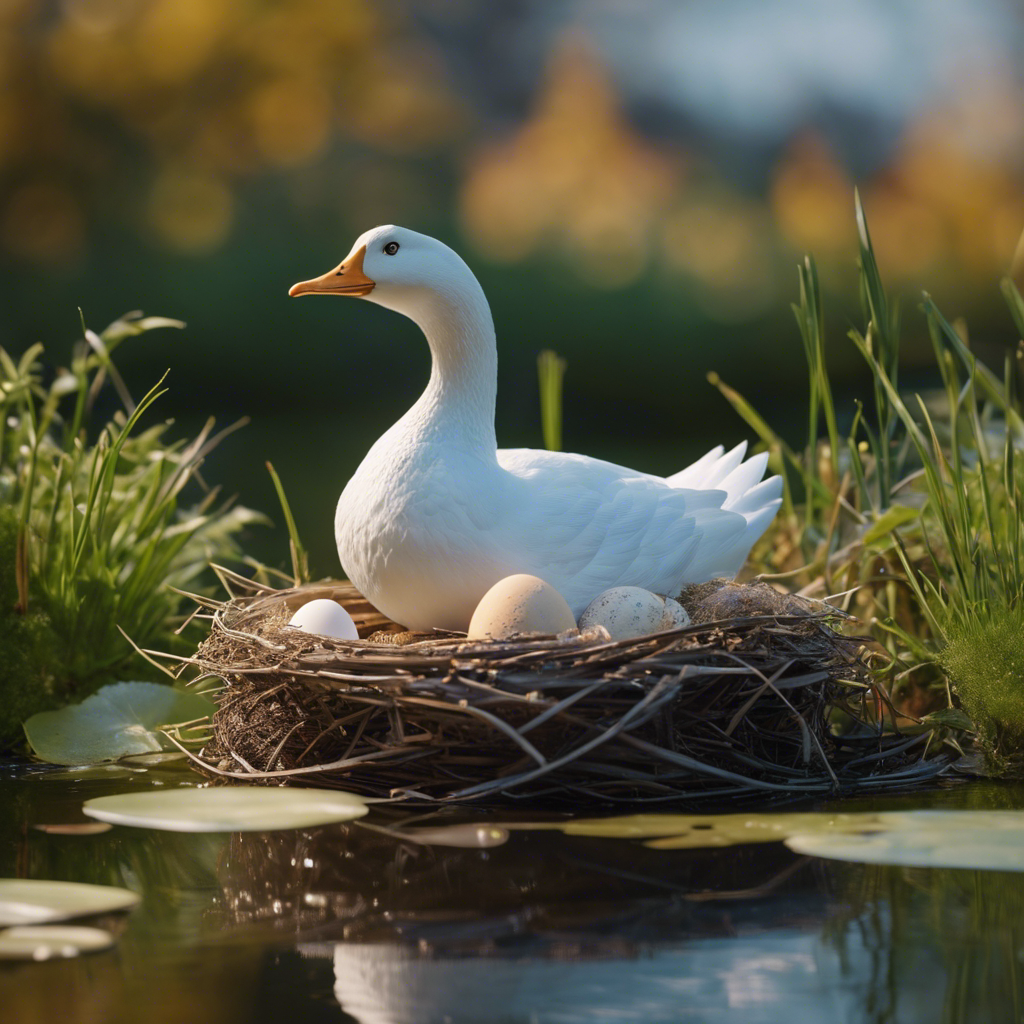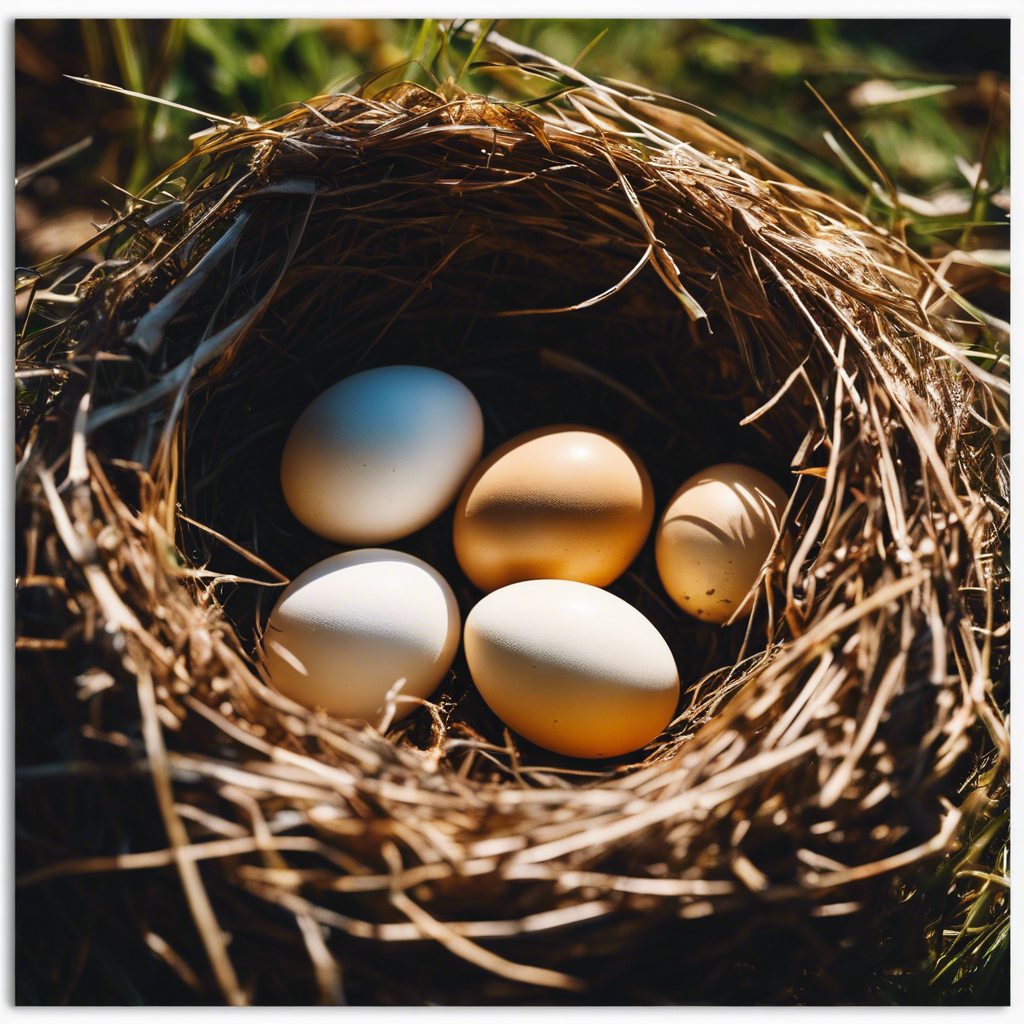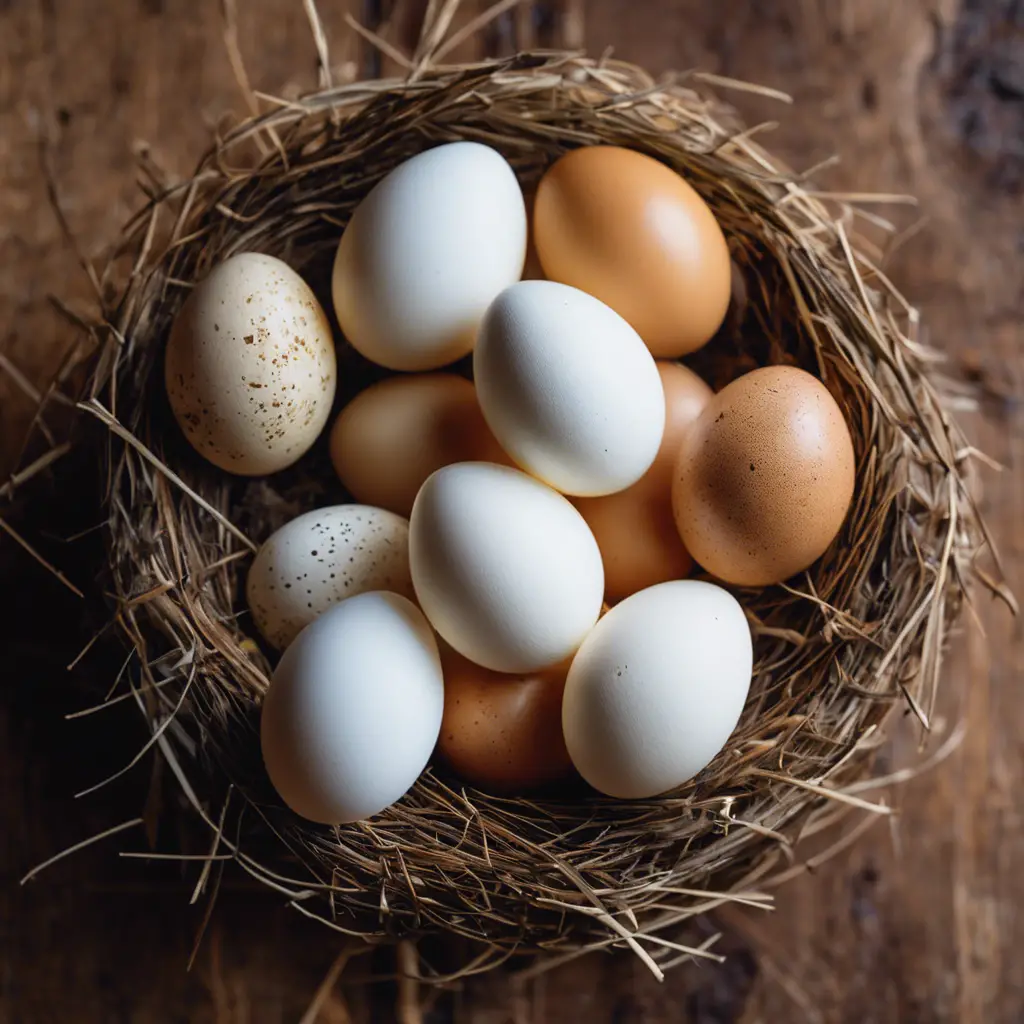As an ornithologist specializing in waterfowl, I’ve dedicated countless hours to studying the hatching of goose eggs. My experience with these magnificent creatures has taught me the patience required to witness the wonder of birth.
I remember, vividly, the anticipation of watching over the incubator, counting the days, knowing that within 28 to 35 days, the eggs would crack open to reveal life. During one particularly memorable hatch, on the 30th day, I observed the first signs of pipping. The tiny beak breaking through the shell was a triumphant moment.
I believe that each hatch is a testament to the delicate balance of nature and the reward of diligent care.
Key Takeaways
- The incubation period for goose eggs lasts between 28 to 35 days.
- Factors such as temperature, humidity, and regular egg turning are crucial for successful hatching.
- Goslings typically emerge 24 to 48 hours after the first pip, which is a small hole made by the gosling inside the eggshell.
- Breed variation and the method of incubation (natural or artificial) can also affect the hatching time of goose eggs.
Understanding Incubation Basics

To successfully hatch goose eggs, it’s essential to grasp the fundamentals of incubation, which initiate the moment you place the eggs into an incubator or when a broody goose starts her dedicated nesting period.
The precise regulation of temperature and humidity is crucial throughout the incubation period, spanning 28 to 35 days. An incubator must reliably maintain the optimal environment to ensure that eggs hatch successfully.
It’s important to regularly turn the eggs to prevent the embryo from sticking to the shell and to monitor the air cell size, which indicates the egg’s internal conditions.
Goslings emerge 24 to 48 hours after the first pip, marking the culmination of the hatching process. Throughout this period, patience and adherence to scientific guidelines are imperative for the incubating goose or the artificial incubator’s handler.
Factors Affecting Hatching Time

Several factors, ranging from breed variation to environmental conditions, critically influence the time it takes for goose eggs to hatch. When you’re incubating and hatching goose eggs, the breed is essential; lighter breeds may hatch sooner than larger ones. Whether you’re using an incubator to hatch or relying on a mother goose, both methods require specific humidity and temperature levels. Turning the eggs is crucial for development, and eggs need consistent care. Additionally, the mother’s health and nutrition can affect the days to hatch. Canada Geese, for example, may exhibit unique nesting behaviors that impact hatching.
| Factor | Description | Influence on Hatching Time |
|---|---|---|
| Breed Variation | Lighter vs. larger breeds | 28-34 days to hatch |
| Incubation Method | Natural vs. artificial | 28-35 days to hatch |
| Nesting Behavior | Broodiness, egg count | Variable |
| Environmental Factors | Humidity and temperature | Crucial for development |
| Nutrition and Health | Condition of mother goose | Affects success rate |
Monitoring Incubation Progress
While understanding the factors that affect hatching time is crucial, it’s equally important to actively monitor the incubation progress to ensure the healthy development of goslings.
Goose eggs usually take 28 to 35 days to incubate and hatch, depending on the breed. During this period, you’ll need to turn the eggs and increase the humidity, especially as the hatch days approach.
Watch for the external pip, the initial break a gosling makes in the eggshell, signaling that they’re able to hatch soon.
Employ a heat lamp to maintain a consistent temperature and consider supplementing with Vitamin E to support the goslings’ health.
If you observe a lack of movement or noise, investigate promptly, as these signs may indicate complications requiring intervention.
Preparing for Gosling Arrival

As the incubation period draws to a close, you must create optimal nesting conditions to welcome the imminent arrival of goslings. A broody goose needs a tranquil environment with easy access to food and water to prevent her from leaving the nest frequently. In the incubator, you should monitor the eggs carefully, maintaining the correct levels of humidity and temperature for successful hatching. Here’s a quick guide:
| Stage | Condition | Action Required |
|---|---|---|
| Pre-Hatch | Eggs in incubator | Maintain much humidity |
| Hatching | Goslings pecking shells | Monitor, assist if necessary |
| Post-Hatch | Goslings emerged | Move to a safe brooder area |
Ensure you’re gently collecting eggs and placing them in the incubator, avoiding any jarring movements that could harm the developing goslings inside.
Frequently Asked Questions
How Long Do Geese Sit on Eggs?
You’ll find geese sit on their eggs for about 28 to 35 days, ensuring proper incubation. They rarely leave the nest, especially during the last critical days leading up to hatching.
How Long Can a Goose Egg Survive Without Heat?
You must maintain consistent warmth, as a goose egg can’t survive without heat for more than a few hours. Extended cold exposure beyond this period jeopardizes the embryo’s viability and hatching success.
What to Do if You Find a Goose Egg?
If you find a goose egg, don’t touch it; the mother may return. If it’s damaged, leave it be. Suspect abandonment? Call wildlife experts. Remember, it’s illegal to disturb goose eggs without authorization.
Does a Mother Goose Leave Her Eggs?
You’ll find a mother goose rarely leaves her eggs, especially during the final incubation days, ensuring they remain warm and protected to maximize the chances of her goslings hatching successfully.
Conclusion
In conclusion, you’ve learned that goose eggs hatch within 28 to 35 days, influenced by breed size and incubation methods. Monitoring temperature, humidity, and egg turning is crucial for successful hatching.
As you approach the final days, remain vigilant and prepare for gosling care. Patience is key, as some eggs may hatch later within this timeframe.
Trust in the process; your attentiveness will soon be rewarded with the arrival of new life.

An avid ornithologist, zoologist and biologist with an unwavering passion for birds and wild animals.
Dr. Wilson’s journey in ornithology began in childhood and led him to obtain a Ph.D. in Ornithology from the prestigious Avian Research Institute. He has worked closely with renowned experts in the field and conducted extensive research and field studies globally.


